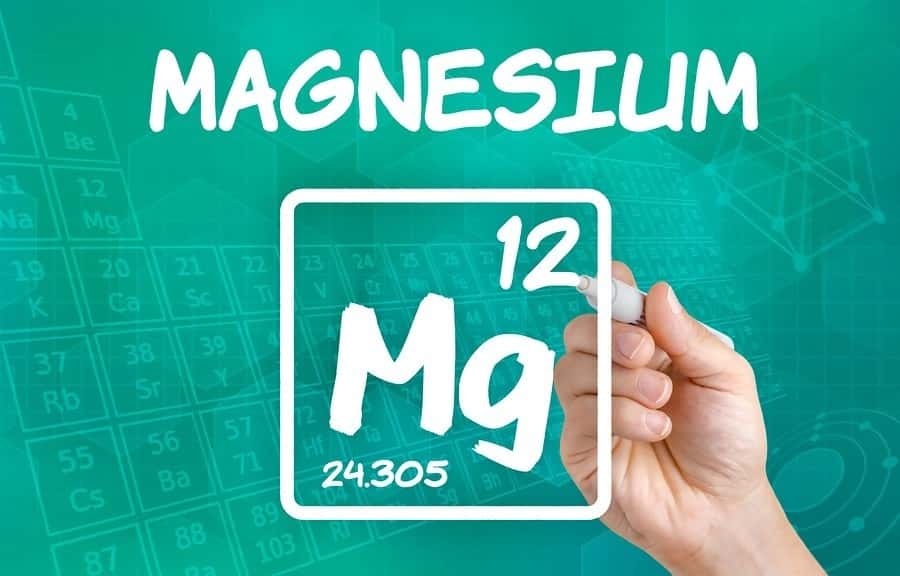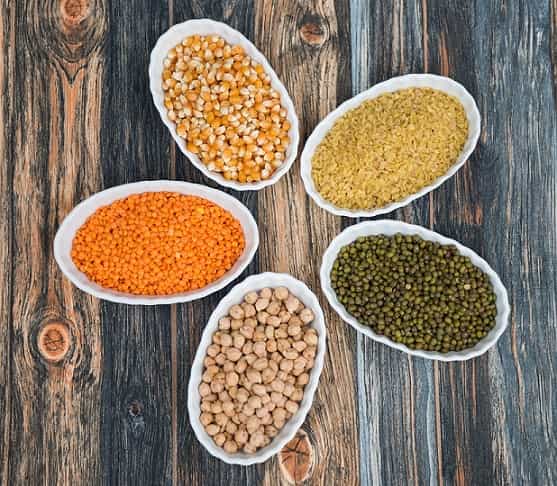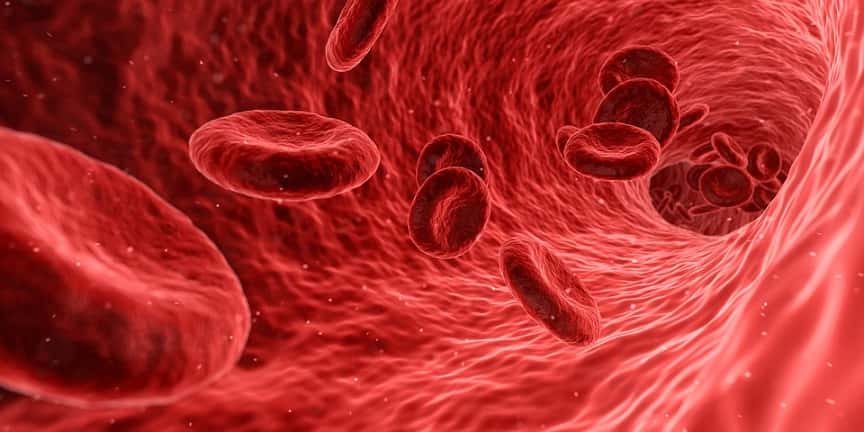Is Magnesium Safe To Take During Pregnancy?
When pregnant you want to ensure you are giving your body everything it needs in order to give your new baby the best chance in life.
A reduction in Magnesium intake during pregnancy can cause anything from muscle cramp, to seizures.
Magnesium is often mentioned as an essential mineral to consume during pregnancy to reduce disease and complications.
But just how safe is magnesium to take during pregnancy? Read on to discover the truth about magnesium during pregnancy.
Author: Dr Sharmila Samaranayake (MBBS, DCH) & Josh Matthews (BSc MS)
Why Magnesium Is An Important Consideration During Pregnancy
Magnesium is a metal ion, commonly involved in many enzymatic functions in our body.
In other words, many essential functions which occur daily in our body depend on this tiny element.
Despite its importance, the World Health Organization states that deficiency of magnesium is prevalent in many people, especially during pregnancy (in both developed and developing countries).
Deficiency of magnesium is known as hypomagnesaemia and it is indeed problematic. Magnesium deficiency is prevalent in many women of child bearing age.
The need for magnesium will increase during pregnancy because of the requirements of the growing fetus as well as the physiological need of the pregnant mother.
Although the need for magnesium increases, the majority of pregnant women are not likely to meet this need from their diet alone.
Magnesium insufficiency or deficiency during pregnancy can pose a real health risk for both the newborn and the mother.
The implications of magnesium deficiency may even extend into adulthood of the offspring.

Why Is Magnesium Needed During Pregnancy?
Magnesium (Mg) is a mineral which is essential for protein synthesis and regulating our body temperature.
It also plays a role in maintaining our muscle cell and nerve cell electrical potentials, so that our muscles and nerves function well.
Magnesium is an essential element for the following:
- Protein and Nucleic Acid Synthesis
- Glucose Utilization
- Production of Energy
- Bone Formation
- Heart Excitability
- Nerve Function
- Muscle Contraction
- Regulating The Tone Of Our Blood Vessels
What Are The Benefits of Taking Magnesium Whilst Pregnant?
Evidence suggest that optimum Magnesium levels are essential for the health of both mother and fetus during pregnancy and for the health of the baby after delivery.
When the magnesium level is well maintained in the mother’s blood, it will benefit the growing fetus too. Let’s see how…
Birth Weight
The fetus which has to grow in an environment with magnesium insufficiency will be at a high risk of intra uterine growth restriction, and will be small for their gestational age.
If a pregnant mother with magnesium deficiency goes into preterm labor because of the risk, baby’s birth weight will be less.
It has been argued, for example in this study published in the Cochrane Library, that magnesium supplementation in pregnancy has no affect on fetus growth.
However other studies, such as this one published in the Journal of Pregnancy, suggests that when mother has an optimum magnesium level, it may increase the birth weight of the baby as well as reduce the chance of disease later in life for the baby.

Preeclampsia (High Blood Pressure)
Although many studies have attempted to make the link between low magnesium levels in the body, and the incidence preeclampsia, this is yet to be proven definitively.
However, when not controlled preeclampsia may progress to eclampsia, where the mother develops uncontrollable fits.
This also increases the possibility of death.
Research does exist however (such as this study by Esuer & Cipolla) which shows that Magnesium Sulfate may help prevent eclamptic seizures.
A study published in Nutrition Reviews also states that administration of magnesium sulfate decreases the risk of eclampsia and maternal death by 50% and is recommended by the American College of Obstetricians for severe preeclampsia.
Similar results were found in this study by the BMC Pregnancy and Childbirth journal.
Following Birth (Disease & Complication Prevention)
The above study by BMC Pregnancy and Childbirth not only demonstrated a reduction in eclampsia, but also a quicker return to mums getting back on their feet following the birth.
Also there was a faster initiation of breastfeeding when magnesium is given to mum 6 hours after childbirth.
Magnesium has the ability to reduce the risk of many complications, including threat to life in both mother and fetus.
A randomized control trial by Zarean and Tarjan demonstrated that there was a reduced chance of growth restriction for the fetus, premature birth, and low birth weight, when mum took a magnesium supplement.
Cramp, Restless Legs, Pain & More
Leg cramps, restless legs, hip and back pain are common symptoms that you may experience during your pregnancy. Some may even experience migraine headaches.
Research has generally found that these unwanted symptoms can be reduced by taking a magnesium supplement.
Certain studies have suggested that inadequacy of magnesium during pregnancy can be associated with many health conditions such as gestational diabetes and increase of blood pressure, which is also associated with high morbidity and mortality.

What Magnesium Rich Foods Are Recommended During Pregnancy?
Nuts, beans, seeds, leafy greens and fish are found to be rich sources of magnesium.
It is a responsibility of the health care provider to counsel pregnant women to increase their intake of magnesium rich foods.
The following table taken from a study by Nutrition Reviews will give us a guide to dietary sources rich in Magnesium:
| Nuts & Seeds | Legumes | Whole Grains | Fish | Leafy Greens |
|---|---|---|---|---|
| Pumpkin Seeds | Black Beans | Quinoa | Salmon* | Kale |
| Almonds | Kidney Beans | Brown Rice* | Cod* | Beet Greens |
| Brazil Nuts* | Pinto Beans | Buckwheat | Mackerel* | Swiss Chard |
| Flax Seed* | White Beans | Wild Rice | Pollock* | Spinach* |
| Cashew Nuts | Navy Beans | Amaranth | ||
| Sesame Seeds* | Spelt |
(*Recommended in moderation, or at certain pregnancy stages only. You may wish to do your own research around what amounts are recommended for your stage in the pregnancy. Alternatively speak to a health professional about this)
Over processing of foods and refinement have resulted in decreased amounts of magnesium which we obtain from our food.
Cultivation practices have changed which has reduced the mineral contents of food we get.
There is a possibility that females who live in areas with hard water can obtain around 100mg of extra magnesium, just by drinking 2 litres of water per day.
We must remember that the magnesium content of water has a considerable variation depending on our geographical location.
Magnesium level you can obtain by drinking bottle water also varies from 1 -120mg daily.
However, the mean intake from food alone is around 240mg daily for a female.

Does Our Gastrointestinal System Absorb All The Magnesium We Take In Whilst Pregnant?
Unfortunately not. It is estimated that only 30-40% of the intake is absorbed from our gut. So the majority goes to waste.
Magnesium absorption also depends on our calcium and Vitamin D intake.
Also if we suffer from any gastrointestinal conditions like Crohn’s disease, Ulcerative colitis or celiac disease, our mineral absorption will be much less.
The output or the excretion of minerals including magnesium will increase if we suffer from kidney failure or if our alcohol intake is excessive.
If we are on certain drugs like diuretics or proton pump inhibitors, the absorption of magnesium is reduced. Therefore, we must consider all these factors when planning our diet or adding a supplement.
If a pregnant woman is not in a position to obtain adequate nutrition then magnesium can be added as a supplement at a safe level.
How Much Magnesium Should a Pregnant Woman Take?
Many pregnant women, especially those from disadvantaged back grounds, may get a low intake of magnesium due to food obtaining difficulties and food habits.
Such pregnant women will almost certainly benefit from magnesium supplementation during pregnancy as it can increase the birth weight of the baby as well as reduce the risk of fetal growth restriction.
US recommended dietary allowance for magnesium (RDA for Mg) is 310mg daily for females aged 19-30 years and 320mg daily for females aged 31-50 years.
However when pregnant, females require about 350-360 mg daily, and for lactation 310-320 mg.

European Union increased their RDA for Mg from 300 to 375mg per day in 2008 due to this element being so important.
Serum magnesium levels have been shown to reduce during pregnancy, but this can be due to the hemo-dilution which occurs during pregnancy.
Therefore the RDA for magnesium is increased by 40mg for both pregnant and breast feeding mothers. So the RDA has a safe upper limit of 350mg daily for magnesium in US.
If you are below 18 years of age and are pregnant, your daily requirement can be as high as 400mg per day.
What Are The Possible Side Effects of Magnesium Supplementation During Pregnancy?
Undesirable side effects include nausea, vomiting and diarrhoea.
These may occur in an overdose, however magnesium overdose is rare when taking supplements as pills if daily dose guidance is followed.
Too much magnesium from foods isn’t a concern for healthy adults, and most people who take magnesium don’t experience side effects.

Magnesium Toxicity
If a pregnant mother continues to take a high dose of a magnesium supplement over a long period, this could potentially lead to magnesium intoxication due to a magnesium overdose (hypermagnesemia).
Basic side effects such as nausea, vomiting and diarrhoea will not harm the baby.
However severe intoxication (levels greater than 12 mg/dL) can lead to cardiac arrest or coma for mum.
How Do You Identify That You Are Deficient In Magnesium Whilst Pregnant?
Early signs of magnesium deficiency include nausea, vomiting, loss of appetite, weakness and fatigue. These symptoms are non-specific.
As magnesium deficiency worsens, numbness, tingling, cramps and muscle contractions, seizures (fits), personality changes, abnormal heart rhythms, and coronary spasms can occur.
So if a pregnant mother is deficient in magnesium these can be unwanted problems you can face.
What Is The Best Magnesium Supplement To Take While Pregnant?
PregnaMag is a magnesium glycinate based supplement which is ideal to take whilst pregnant.
It is easy on the gut, well absorbed by the body, and contains to nasty fillers or additives.
You can find further details on this supplement by clicking here.
Conclusion – Is Magnesium Safe To Take During Pregnancy?
If you are pregnant, magnesium is important for almost every system in your body as well as for your growing baby.
Depending on your age, you may need around 350 – 400mg of magnesium each day during your pregnancy.
Although it is pretty easy to obtain your daily requirement of magnesium from a healthy, balanced diet, if you think you cannot get enough of magnesium, talk to your Doctor or Obstetrician about getting a supplement.
Across the range of studies conducted around magnesium and pregnancy, it is interesting to note there is very little in the way of negative affects when taking magnesium for pregnancy.
Magnesium is only considered possibly unsafe when persistently taken in very large amounts (e.g. more than 350mg daily).
Overall, magnesium supplementation in pregnancy is safe, and it can help to reduce the risk of pregnancy complications and benefit the growth of your fetus.
We hope you found this article on Magnesium safety during pregnancy useful. Check back here for more articles like this.
Disclaimer: All information on this site is for information only, and not intended to replace the advice of a qualified medical professional. curemycramp.com and any writers associated with this website accept no responsibility for circumstances arising from the use of information on this site, without consulting a registered health professional first.


